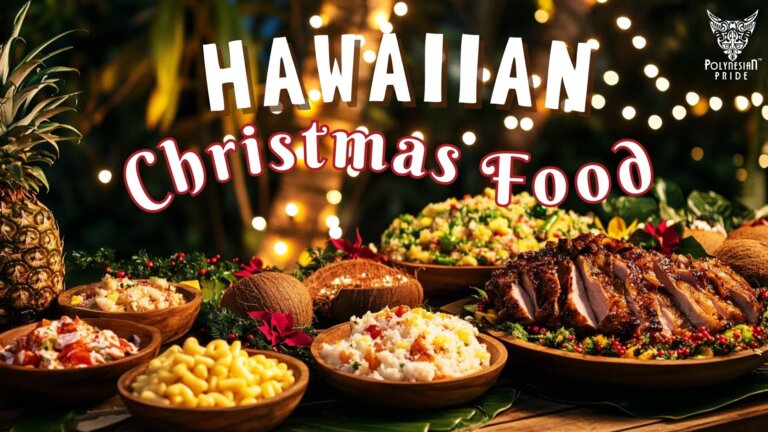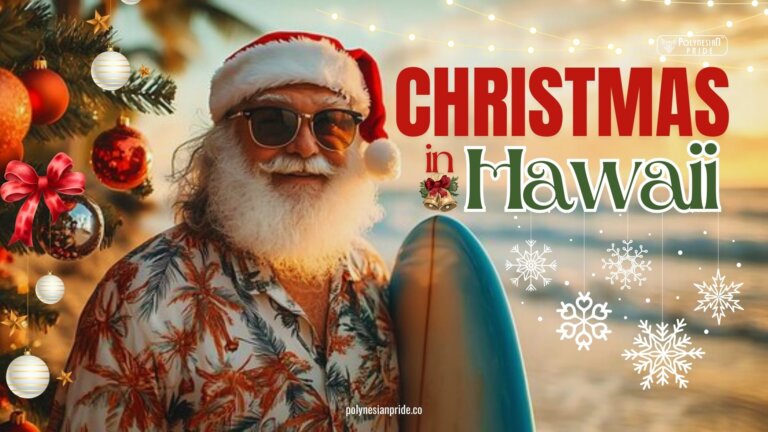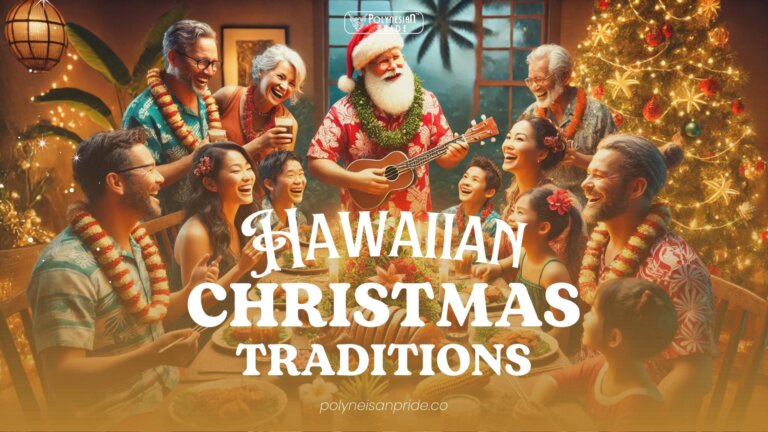What’s Samoan Culture? Local Guide Unveiling A Rich Heritage

INTRODUCTION
When you think of Samoa, what comes to mind? Pristine beaches? Lush landscapes? While these are indeed part of its charm, the true essence of Samoa lies in its vibrant culture. But what’s Samoan culture all about? Let’s take a deep dive into the heart of Samoa to understand its traditions, values, and way of life.
I. Fa’a Samoa: The Way Of Life
A. What’s Samoan Culture in Fa’a Samoa?
“Fa’a Samoa” is the traditional Samoan way of life, encompassing values, beliefs, and practices passed down through generations. It governs all aspects of Samoan society, from family structures and social hierarchies to cultural practices and decision-making.
At its core, ‘Fa’a Samoa’ emphasizes “va fealoaloa’i”, maintaining harmonious relationships and showing respect. This principle is deeply ingrained in Samoan culture and reflected in language, behavior, and community interactions.
B. The Role of Chiefs and Village Councils
Chiefs (matai) and village councils (fono) play vital roles in preserving ‘Fa’a Samoa’. Chiefs uphold cultural traditions and make decisions impacting their families and villages. Village councils, composed of chiefs and elders, govern community life, including land distribution, conflict resolution, and organizing cultural events.
C. Education and Cultural Transmission
Education is crucial in transmitting cultural values. Schools teach language, history, dance, and music to instill a strong sense of identity and pride. Elders and community leaders mentor youth, sharing knowledge and skills to uphold ‘Fa’a Samoa’ in a changing world. They help young Samoans navigate modern challenges while staying true to their heritage.

II. What’s Samoan Culture in Society
A. The Strength of Family Ties
In Samoa culture, the family, or ‘aiga’, is fundamental. Strong family bonds, interdependence, and collective responsibility are highly valued. The extended family, including grandparents, aunts, uncles, and cousins, shapes an individual’s identity and provides guidance and support.
Respect, known as ‘fa’aaloalo’, is crucial in family dynamics. People express this respect through language, behavior, and adherence to hierarchical structures. Elders hold authority, wisdom, and decision-making power, commanding reverence and playing a pivotal role in family life.
B. The Essence of Community
Samoan communities emphasize cooperation, reciprocity, and collective well-being. The village, or ‘nu’u, is central to social life, where families engage in communal activities, celebrations, and decision-making processes. The ‘fa’amatai’ system governs the socio-political structure, with chiefs overseeing extended families, or ‘matai’.
These chiefs ensure the community’s well-being, mediate conflicts, and preserve cultural values. This system fosters a sense of unity and shared responsibility within the community.
C. Respect for Elders and Hierarchy
Respect for elders and hierarchy is intrinsic to Samoan culture. Villagers revered Elders for their wisdom, knowledge, and experience. They are responsible for guiding family and village affairs and ensuring the transmission of traditions and cultural practices to younger generations. Hierarchical respect extends beyond the family to the village and the broader community, reinforcing social order and cultural continuity.

III. Exploring Every Aspect of Samoa Culture
A. What’s Samoan culture in Tatau?
Samoan tattooing, or ‘tatau’, is an ancient art form deeply rooted in cultural significance and spirituality. The intricate designs, known as ‘pe’a’ for men and ‘malu’ for women, are meticulously crafted using traditional tools and techniques passed down through generations.
The tattooing process is a rite of passage, symbolizing strength, endurance, and cultural identity. The designs, often featuring geometric patterns, symbols, and motifs, hold deep meaning and are believed to imbue the wearer with spiritual protection and connections to their ancestors.

B. Clothing
Traditional Samoan attire is a vibrant display of the island’s heritage. For events or work attire, traditional clothing for women is the puletasi, which consists of a matching skirt and tunic adorned with Samoan designs.
The lava-lava, a sarong worn by men and women, comes in various patterns and colors. Men typically wear plain lava-lavas, especially when part of an official uniform.

C. Music And Dance
Music and dance are integral to understanding “What’s Samoan culture”. Traditional songs, known as pese, are performed during ceremonies and celebrations, along with dances like the siva. These performances are not just entertainment but expressions of identity, storytelling, and social cohesion.

D. Religion And Spirituality
Religion plays a pivotal role in Samoan culture. Before the arrival of Christianity, Samoans practiced animism, believing in spirits connected to nature. Today, Christianity is predominant, with most Samoans identifying as Christian. However, traditional beliefs and practices are still respected and observed.

E. Sports and Recreation
In discovering “what’s Samoan culture”, sports are an essential part. Samoans are passionate about rugby, their most popular sport. Traditional games like kilikiti (Samoan cricket) also hold cultural importance, fostering community spirit and physical fitness.

F. Housing and Architecture
Traditional Samoan houses, or Fales, are open structures with thatched roofs and no walls, promoting natural ventilation and communal living. Modern architecture in Samoa incorporates these traditional elements, blending the old with the new to create functional and culturally resonant homes.

IV. Samoan Cuisine
A. Traditional Samoan Dishes
Samoan cuisine is a delightful blend of indigenous ingredients and flavors, showcasing the island’s rich natural resources and cultural heritage. Central to Samoan cooking is the ‘umu’, a traditional earth oven where dishes are cooked with heated stones and covered with banana or taro leaves.
Cuisine culture in Samoa relies heavily on locally sourced ingredients like coconut, taro, breadfruit, bananas, fish, and shellfish. These staples highlight the deep connection between the people and their land.
Here’s a table of popular traditional Samoan dishes:
| Dish | Description |
| Palusami | Parcels of coconut cream and onions wrapped in taro leaves and baked in an ‘umu’ |
| Fa’alava’au | Baked or steamed parcels of corned beef, coconut cream, and taro |
| ‘Oka’ | Raw fish marinated in coconut cream and lime juice |
| Sapasui | Chop suey consists of Chinese-style noodles, meat, and vegetables |
| Pisupo | A traditional dessert made with coconut cream and arrowroot starch |

V. Modern Samoan Culture
A. Global Influences and Cultural Exchange
In answering “What’s Samoan culture?”, it’s clear that Samoan culture is evolving with globalization, technology, and migration. This blend of traditional and modern elements is evident in various aspects of Samoan life. For instance, modern Samoan music now includes Western instruments and genres, appealing to local and global audiences. Improved communication and transportation have facilitated the exchange of ideas and cultural practices, enriching Samoan identity.
B. Challenges and Opportunities
Understanding the culture in Samoa involves recognizing its challenges and opportunities. While embracing modernity, Samoa culture faces issues such as urbanization, environmental degradation, and the influence of mass media. These issues threaten traditional values and practices, but they also offer opportunities for innovation in preserving and promoting Samoan culture. Cultural festivals, arts programs, and educational campaigns are crucial in raising awareness, fostering pride, and ensuring the continuity of ‘Fa’a Samoa’ for future generations.
C. Cultural Revitalization and Empowerment
Grassroots movements, governmental support, and community initiatives drive efforts to revitalize and empower Samoan culture. They focused on language preservation, traditional arts, sustainable practices, and youth engagement to strengthen cultural identity and promote intergenerational dialogue. By celebrating diversity and honoring their ancestor’s legacy, modern Samoans balance tradition and innovation, navigating contemporary challenges while upholding the timeless values of ‘Fa’a Samoa’.

VI. Tips To Fully Enjoy Samoa Culture
Learn Basic Samoan Phrases
Knowing a few words in Gagana Samoa, such as “talofa” (hello) and “fa’afetai” (thank you), can go a long way in showing respect and engaging with locals.
Respect Local Customs
Remove your shoes before entering a home or a fale (traditional house). Dress modestly, especially in villages and during church services.
Participate in Cultural Activities
Join local festivals like the Teuila Festival to experience traditional dances, music, and crafts. You can also participate in a fiafia night featuring Samoan entertainment and food.
Visit Historical and Cultural Sites
Learn about Samoan history and traditions at places like the Robert Louis Stevenson Museum and the Samoa Cultural Village.
Try Traditional Foods
Sample dishes like palusami, ‘oka, and taro cooked in an umu. Visiting local markets can also provide a taste of Samoan cuisine.

Engage with Locals
Engage in conversations with Samoans to learn more about their way of life. Many are happy to share stories and explain their customs.
Respect the Environment
Samoans have a deep connection to their land and sea. To honor this relationship, follow eco-friendly practices, such as not littering and respecting marine life.
Observe Fa’a Samoa
Understand and respect Fa’a Samoa, the Samoan way of life, which emphasizes community, respect, and cultural pride. Observing Fa’a Samoa is crucial to understanding what’s Samoan culture.
Attend a Church Service
Religion plays a significant role in Samoan culture. Attending a Sunday service can provide insight into Samoan life’s communal and spiritual aspects.
Support Local Artisans
Purchase handicrafts and artwork directly from local artisans. Buying directly from them supports the local economy and helps preserve traditional crafts.
CONCLUSION
Samoan culture is a rich tapestry of traditions, values, and practices that have endured through time. Every aspect of Samoan life holds cultural significance, from the importance of family and social hierarchy to the vibrant expressions of art and dance. As globalization continues to impact societies worldwide, preserving and celebrating cultural heritage becomes even more vital. Understanding “what’s Samoan culture” reveals its deep roots and vibrant expressions, offering a valuable lesson in the importance of cultural identity and community.
What is Fa’a Samoa?
Fa’a Samoa, or “The Samoan Way”, is the cultural framework that guides Samoan life. It emphasizes family, community, and respect, and is central to understanding what’s Samoan culture.
How does Samoan culture view family?
Family, or ‘aiga’, is central to Samoan culture. It encompasses a broad network of extended relatives who support and care for each other, illustrating what’s Samoan culture in terms of familial bonds.
What are some traditional Samoan dishes?
Traditional Samoan dishes include palusami (taro leaves with coconut cream), oka (raw fish salad), and fa’apapa (sweet coconut bread).
How does Samoa culture adapt to modern changes?
Samoan culture adapts to modern changes by integrating new elements while preserving core traditions, demonstrating the resilience and adaptability of what’s Samoan culture.

I am Leilani Miller – I research focusing on Vanuatu – volcanic landscapes, blue holes, coral reefs & rainforests. I have over five years of experience researching and sharing insights on tourism and environmental activism. Explore and experience without limits through my latest article.
Contact information:
Email: [email protected]
Tel: +1 (808) 555-1528






